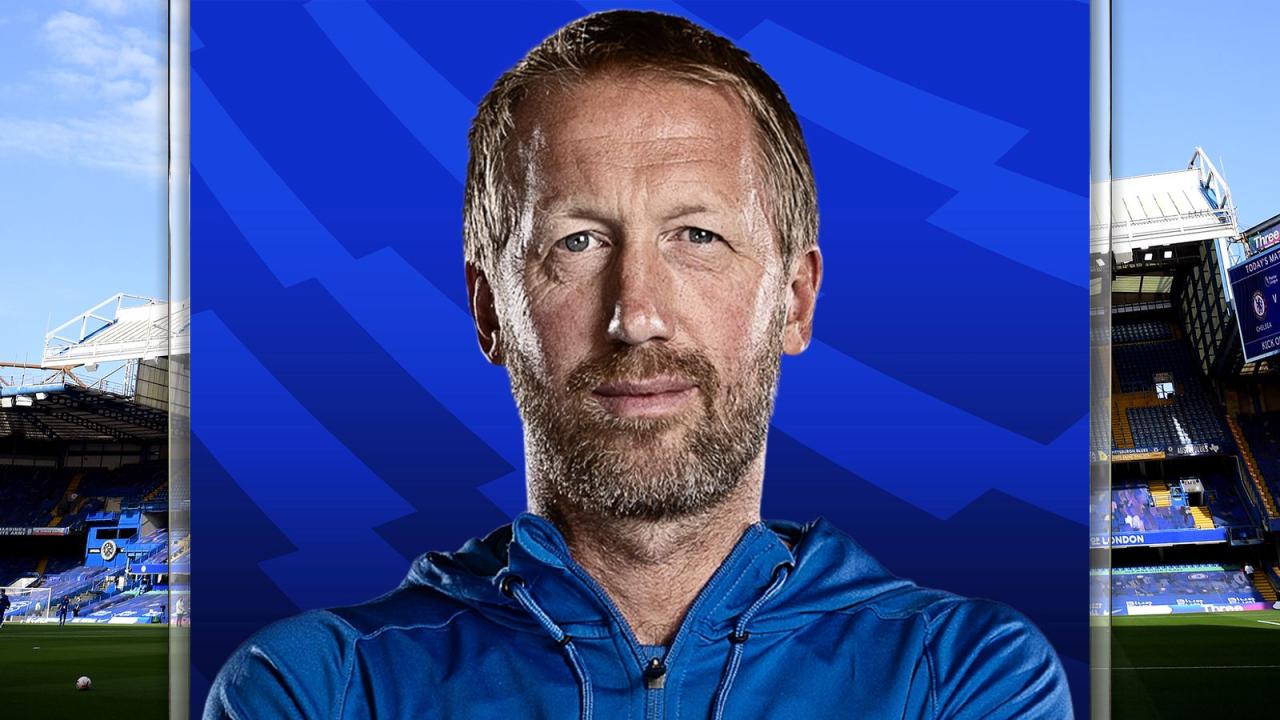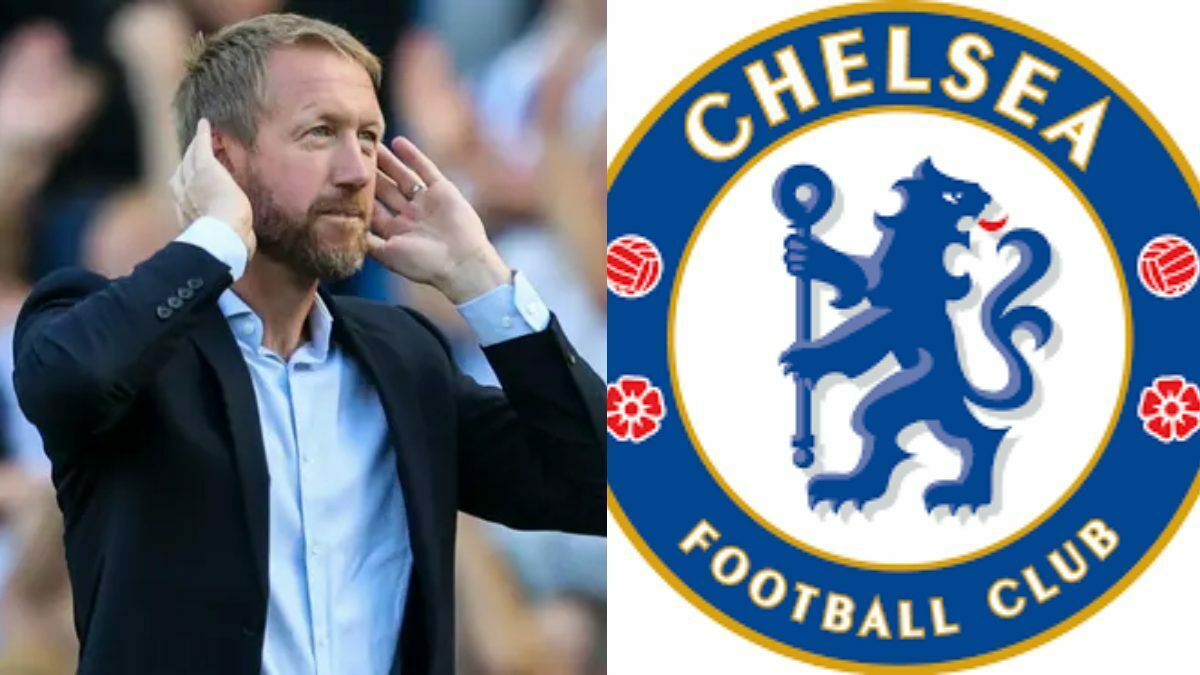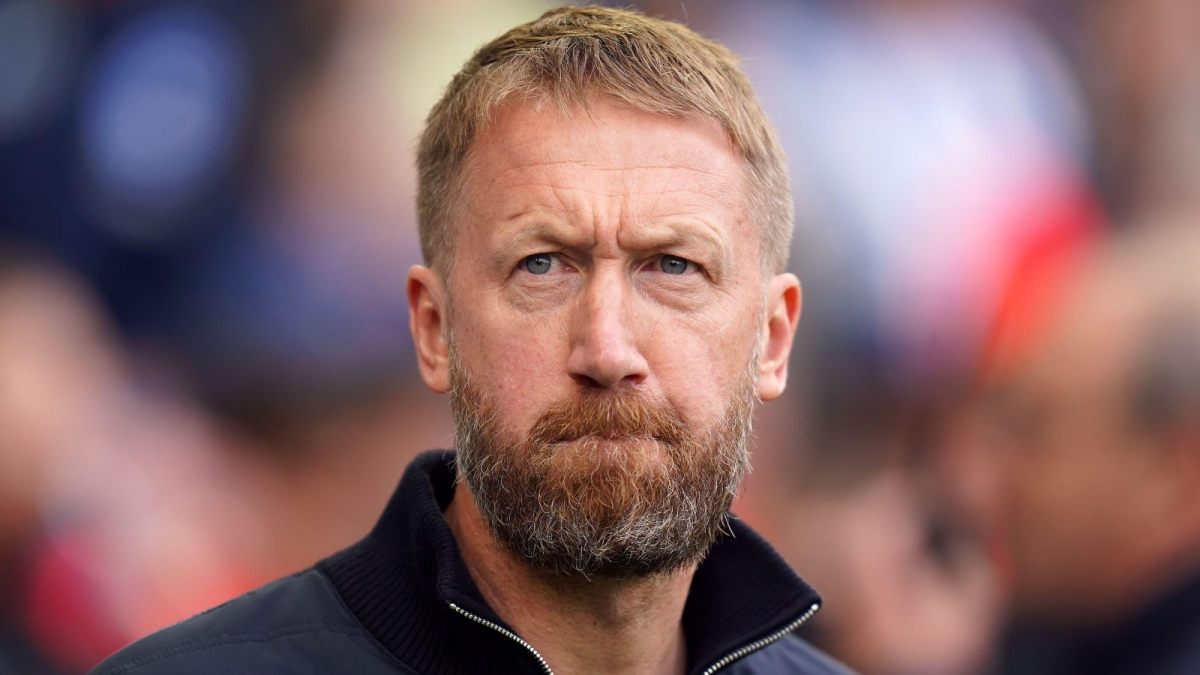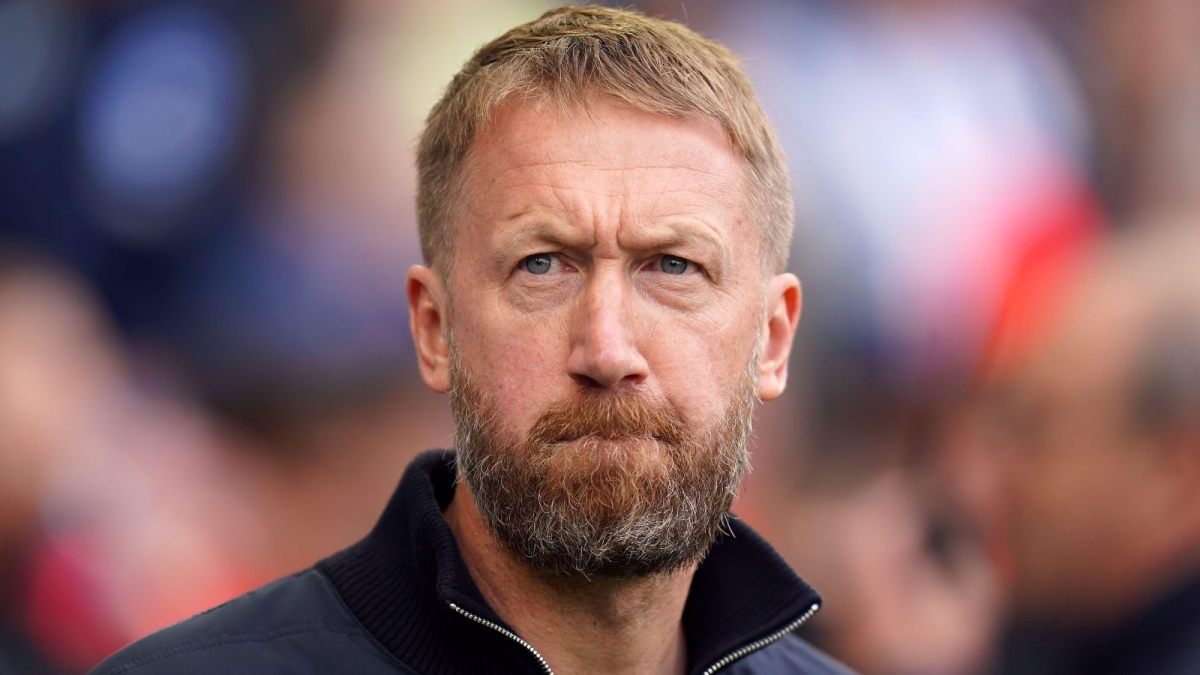Graham Potter appointed West Ham United Head Coach | West Ham’s new manager faces a significant challenge: revitalizing a club struggling for consistency. This appointment marks a pivotal moment for both Potter and the Hammers, presenting opportunities for growth and success but also potential pitfalls. His tactical expertise and managerial style will be key to unlocking the team’s potential and navigating the pressures of the Premier League.
We’ll delve into Potter’s managerial history, examining his successes and failures at previous clubs to understand his approach. We’ll also analyze West Ham’s current situation, highlighting their strengths and weaknesses, and assess how Potter’s tactics might fit within the existing squad. Finally, we’ll explore the potential challenges and opportunities ahead, including short-term and long-term goals for both the manager and the club.
Graham Potter Appointed West Ham United Head Coach

The appointment of Graham Potter as West Ham United’s new head coach marks a significant moment for the club. His arrival brings a fresh tactical approach and a wealth of experience, albeit with some inherent risks. This analysis delves into Potter’s managerial history, West Ham’s current situation, and the potential implications of this appointment for the Hammers.
Graham Potter’s Managerial Career
Potter’s managerial journey has been a steady climb, showcasing adaptability and a clear tactical philosophy. He’s proven his ability to develop players and implement innovative systems, although his time at Chelsea highlighted the challenges of managing high-profile squads under immense pressure.
- Östersunds FK (2011-2018): A remarkable period where Potter transformed a relatively unknown Swedish club into a top-flight contender, showcasing his ability to build a team from the ground up and implement a unique playing style.
- Swansea City (2018-2019): A brief but successful stint in the Championship, demonstrating his ability to adapt to a different league and manage expectations.
- Brighton & Hove Albion (2019-2022): His most significant achievement, establishing Brighton as a respected Premier League team known for its possession-based, attacking football. He consistently exceeded expectations, developing young talent and achieving impressive results against top teams.
- Chelsea (2022-2023): A challenging period marked by significant squad turnover and high expectations. While the results weren’t always positive, his attempts to implement a complex tactical system were evident.
West Ham United’s Current State

West Ham currently finds itself in a transitional phase. While their recent Europa Conference League triumph was a highlight, their Premier League form has been inconsistent. The squad needs strengthening in certain areas, and the pressure on the new manager to improve results is considerable.
So Graham Potter’s the new West Ham boss, huh? Big change for the club. It’s a crazy world, though – while we’re focusing on football, check out this article on how climate change is impacting California wildfires: Climate change: What role is it playing in the California fires. It’s a serious issue that deserves attention, even amidst the excitement of a new Premier League manager.
Hopefully, Potter can bring some stability to West Ham.
- League Position and Form: West Ham’s league position fluctuates, reflecting the team’s inconsistency. Recent results will dictate their precise standing at the time of this analysis.
- Team Strengths and Weaknesses: Strengths might include certain key players and a strong team spirit, while weaknesses could lie in defensive solidity or a lack of consistent goal-scoring.
- Recent Transfer Activity: An overview of West Ham’s recent transfer activity, highlighting both successful and less successful acquisitions, would paint a picture of the squad’s composition.
- Expectations and Pressures: The expectations are high, with fans and the board demanding improved Premier League performance and a continued presence in European competitions.
Potter’s Fit at West Ham
Potter’s possession-based, attacking style might be a good fit for West Ham’s squad, provided he can adapt his system to the players’ strengths. Integrating new signings and building team cohesion will be crucial.
- Tactical Style and Suitability: A detailed comparison of Potter’s preferred formation and tactics with West Ham’s current setup. This would highlight areas of potential synergy and areas needing adaptation.
- Player Integration: A discussion on how Potter might integrate new signings and existing players into his system, considering their individual skills and tactical preferences.
- Potential Starting XI: A hypothetical starting XI under Potter, justifying each selection based on player attributes and tactical considerations. This would involve analyzing the strengths and weaknesses of the current squad and predicting Potter’s likely choices.
Potential Challenges and Opportunities
Potter faces significant challenges, including integrating his system, managing expectations, and dealing with media scrutiny. However, the opportunity to build a successful team at a club with ambition is significant.
- Challenges: These might include integrating his tactical system, managing player expectations, and dealing with the intense media scrutiny that comes with managing a Premier League club.
- Opportunities: The opportunity to build a long-term project at a club with a passionate fanbase and ambition to succeed both domestically and in Europe.
- Key Performance Indicators (KPIs): KPIs for evaluating Potter’s success could include league position, goal difference, attacking and defensive statistics, and overall team performance in various competitions.
Impact on Players and Team Dynamics
Potter’s management style is likely to affect individual players and team dynamics. His focus on player development and tactical flexibility could lead to significant changes in the team’s playing style and philosophy.
- Impact on Individual Players: An analysis of how Potter’s management style might affect individual players’ performances, considering their strengths, weaknesses, and potential for growth under his guidance.
- Team Morale and Cohesion: A discussion on the potential impact of Potter’s leadership on team morale and cohesion, highlighting his ability to create a positive and productive team environment.
- Changes in Playing Style: A description of how Potter’s approach might change the team’s playing style and philosophy, highlighting the shift from previous strategies and the integration of his tactical principles.
- Player Relationships: Examples of how Potter has previously handled player relationships and team dynamics, demonstrating his ability to manage diverse personalities and build a strong team culture.
Short-Term and Long-Term Goals

Realistic short-term goals might focus on improving league form and building team cohesion, while long-term objectives would involve challenging for European places and developing a sustainable winning culture.
- Short-Term Goals: These might include improving league form, securing a comfortable mid-table position, and building team cohesion and understanding of Potter’s tactical system.
- Long-Term Goals: These could include challenging for European qualification, developing young players, and establishing a consistent winning culture at West Ham.
- Interconnection of Goals: An explanation of how the short-term and long-term goals are interconnected, demonstrating how success in the short term will contribute to the achievement of long-term objectives.
- Detailed Plan: A detailed plan outlining the steps needed to achieve both short-term and long-term objectives, including specific strategies and timelines.
Comparative Analysis: Potter’s Previous Teams and West Ham, Graham Potter appointed West Ham United Head Coach | West
A comparison of Potter’s previous teams and West Ham highlights similarities and differences in playing styles, squad strengths, and league performance.
| Team | Playing Style | Squad Strengths | League Performance |
|---|---|---|---|
| Östersunds FK | Possession-based, attacking | Team spirit, tactical flexibility | Significant overachievement |
| Swansea City | Possession-based, attacking | Technically gifted players | Championship promotion |
| Brighton & Hove Albion | Possession-based, attacking | Solid defense, creative midfield | Consistent mid-table finishes |
| Chelsea | Possession-based, attacking | High-profile players | Inconsistent results |
| West Ham United | Counter-attacking, direct | Strong individual players | Inconsistent results |
Potential Tactical Approaches at West Ham
Potter might employ several tactical approaches at West Ham, adapting his strategies based on the opposition and the availability of players. The 4-3-3 formation is a possibility, but he might also experiment with variations depending on the specific match scenarios.
So, Graham Potter’s new gig as West Ham United Head Coach is big news, right? It’s a pretty dramatic shift in his career. Meanwhile, completely unrelated, but also making headlines is the news that Richard Hammond has announced a split from his wife Mindy, after reading about which, Richard Hammond announces split from wife Mindy after an incredibly busy few years.
Anyway, back to Potter – let’s see how he does at West Ham!
- 4-3-3: A balanced formation emphasizing possession and quick transitions. This would allow for creative midfield play and attacking width.
- 3-4-3: A more defensive formation, prioritizing solidity at the back while still maintaining attacking threat through wing-backs.
- 4-2-3-1: A formation emphasizing control in midfield and a strong central attacking presence.
A potential 4-3-3 setup might see a back four of Cresswell, Zouma, Aguerd, and Coufal, a midfield trio of Rice, Soucek, and Paqueta, and a front three of Bowen, Antonio, and Benrahma. This lineup balances defensive stability with attacking creativity.
Concluding Remarks
Graham Potter’s appointment as West Ham United’s head coach is a high-stakes gamble with potentially significant rewards. His ability to adapt his tactical approach to the players at his disposal, manage expectations, and navigate the inherent pressures of the Premier League will determine his success. The coming months will be crucial in assessing whether this appointment proves to be a masterstroke or a misstep for the Hammers.
Only time will tell if Potter can transform West Ham into a consistent top-flight contender.
FAQs: Graham Potter Appointed West Ham United Head Coach | West
What is Graham Potter’s preferred formation?
While adaptable, Potter often favors a 3-4-3 or a 3-5-2, prioritizing possession-based football and fluid movement.
What are West Ham’s biggest weaknesses?
So, Graham Potter’s taking the reins at West Ham – big news for the Hammers! It’s a pretty dramatic shift in football news, especially when you consider completely unrelated things like the tragic news that broke about Liam Payne; check out the details here: Liam Payne’s medical cause of death confirmed as polytrauma. Anyway, back to Potter – hopefully he can bring some much-needed stability to West Ham’s season.
Inconsistency in midfield and a lack of depth in certain attacking positions have been cited as key weaknesses.
How much experience does Potter have in the Premier League?
He previously managed Brighton & Hove Albion in the Premier League.
What are some realistic short-term goals for Potter at West Ham?
Improving team consistency, securing a mid-table finish, and integrating new signings effectively are key short-term aims.
